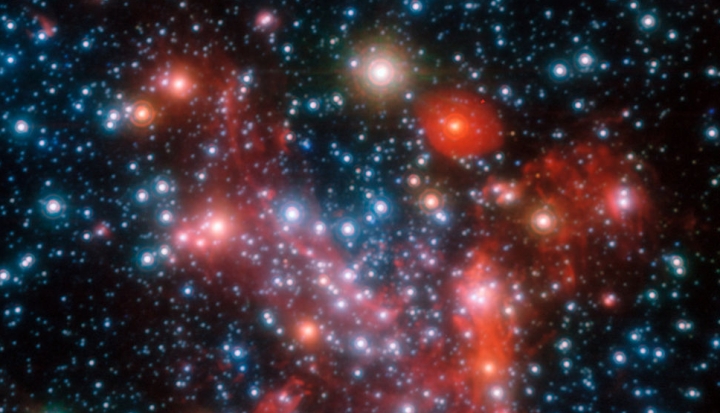News today that scientists have discovered yet another extra-solar planet in the so-called "Goldilocks zone"–not too hot, not too cold for liquid water–ought to stir up more speculation about extraterrestrial life. What's different about this discovery? The planet is a mere 12 light years away, and its star, Tau Ceti, is visible to the naked eye. What's more, this particular planet is between twice and six times the size of Earth, which is the smallest we have yet detected. Since it's much easier to detect large planets, it's likely that there are many more small planets we haven't yet detected.
With a habitable planet so ridiculously close–astronomically speaking–the likelihood is ever growing that we are not all alone as the only sentient beings in the cosmos. The discovery of someone else will necessarily once again up-end our theological imaginations, much like Darwin's discoveries about the origin of biological life has done or Einstein's account of the universe. But if we discover and/or come into contact with God's non-Earthling children, what will we discover about their faith? Will we send Christian missionaries?
Believe it or not, this question has current implications in the matter of religious pluralism. It is currently the teaching of the Catholic Church that Jesus Christ is the normative means of human salvation, so while other religions contain some saving truth, the fullness of God's revelation can be found only in Jesus Christ. (I'd judge Roman Catholic teaching right now to be "inclusivist"–it recognizes that God can and does save people outside Chrisitianity, but doesn't recognize other religions as "salvific" in their own right. "Exclusivists" would argue that you have to believe in Jesus to be saved; "pluralists" would say that the means of salvation, however understood, are accessible in many religions.)
If we did discover, however, that other sentient beings exist outside our friendly confines, it would be difficult to maintain that a human being born 2,000 years ago is also their Savior. Their own "salvation history" might be quite different. Might we have to argue that God's revelation in Jesus Christ is normative only for this planet? That God's Word took flesh in another way on Tau Ceti Earth? What might that say about how we judge Islam or Buddhism?
Maybe nothing–but I can't imagine that it won't require a big expansion in our religious imagination.
Image via Wikimedia Commons cc by ESO/S. Gillessen et al








